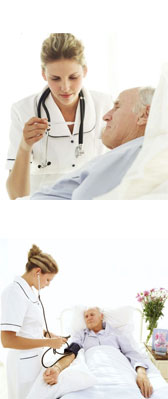Get the facts on Cortical Basal Ganglionic Degeneration treatment, diagnosis, staging, causes, types, symptoms. Information and current news about clinical trials and trial-related data, Cortical Basal Ganglionic Degeneration prevention, screening, research, statistics and other Cortical Basal Ganglionic Degeneration related topics. We answer all your qestions about Cortical Basal Ganglionic Degeneration.
Question: What exercises can be done to help with Cortical Basal Ganglionic Degeneration? My grandma has been recently diagnosed with it and I want to help her out with exercises. It has signs of a lot of things like Parkinson's and Alzheimer's, any suggestions would be helpful, thanks!
Answer: It is wonderful that you want to help. Be prepared for some frustration as CBGD is a rapidly progressing, not well understood condition.
Your family should also look into Voice Therapy which can help your grandma maintain her speaking volume, swallowing and breathing as long as possible. Constant repetition will be required as her muscles become more rigid. As in Parkinson's disease, aspiration pneumonia is the leading cause of death in Cortical Basal Ganglionic Degeneration.
I am going to provide 2 links for vocal exercises. The first is for exercises you can do with your grandma.
http://parkinsonsfocustoday.blogspot.comâ¦
If this seems like too much, try the next link for a DVD you can order. It is really good and it takes you through a few sessions of voice exercises with an actual class. It is the product of an experienced speech pathologist:
http://parkinsonsfocustoday.blogspot.comâ¦
Physical exercise should focus on two areas. The first is simple stretching exercises to avoid stiffness caused by muscle rigidity and leading to contracture. You can make these up as you go along or you can try some of these:
http://parkinsonsfocustoday.blogspot.comâ¦
Simple repetitive exercises such as tapping one finger at a time or "picking up pasta" as listed in an article above can be more helpful as time goes by. They need to be started now.
It is important that occupational therapy be done as well. This means that tasks of daily living will be involved. Learning new ways to do things such as dressing, cooking, personal hygiene so that a person can be self sufficient for a longer time.
One problem with CBGD is that cognitive skills often suffer and the patient can also undergo some personality changes. You may not be able to do much about the personality changes but if you and your family are prepared mentally, you will know that it may be a disease phase which might linger or suddenly stop.
Know also that mental exercises are important. If she likes Suduko, do it with her. Crossword puzzles are not as effective for cognitive skills but better than not doing anything. Read with your grandma now - she may have some eye problems later. Spend time with her recording the family history that she knows.
Know that she will probably need walking aids: cane, walker, wheelchair.
One suggestion which I read was to have a reclining chair with a motorized lift seat. That may be covered by Medicare. Since these are more expensive from the wheelchair she will eventually need, ask the family to consider the backs of the caregivers and if she will still be at home for care. Medicare will only cover one of these items...unless that has changed recently.
I am sorry to hear about your grandma. You have your work cut out for you but you will be glad that you spent the time with her while you could.



